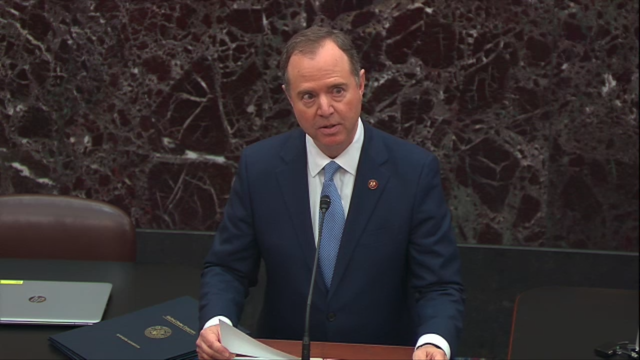President Donald Trump has once again made headlines with his public criticism of Senator Adam Schiff, D-Calif., focusing on claims related to Schiff’s Maryland property and mortgage arrangements. The president’s remarks, shared via his social media platform, have reignited long-standing tensions between the two political figures and sparked renewed discussion about public officials’ financial disclosures and property designations.
Background
The controversy revolves around Senator Schiff’s ownership of a home in Maryland while simultaneously maintaining his California residence during his congressional service. Trump alleges that Schiff misrepresented the Maryland property as his primary residence to secure advantageous mortgage terms. According to the president, this purported misrepresentation was part of a larger pattern of financial maneuvering designed to benefit from favorable lending conditions.
In his statements, Trump emphasized that the matter involved a federal mortgage lender, suggesting that a review by the lender’s financial oversight division had identified a potential pattern of irregularities. He characterized Schiff as a “scam artist” and asserted that the alleged actions warranted legal scrutiny. While the president’s allegations are public, no official documents confirming wrongdoing have been released by the lender or any government agency.
Schiff’s Response
Senator Schiff has consistently denied any wrongdoing, describing the allegations as baseless and politically motivated. His office maintains that the mortgage lenders were fully aware of Schiff’s congressional service and his intended use of both residences. According to Schiff, all necessary disclosures were properly made, and no rules were violated in designating his Maryland and California properties for their respective purposes.
Schiff and his team have emphasized that federal law only requires members of Congress to be residents of the state they represent at the time of their election, not necessarily for the entirety of their term. As a result, holding a property in another state does not automatically constitute a violation of residency rules.
Historical Context
The claims regarding Schiff’s Maryland property are rooted in previous scrutiny of congressional members’ real estate and mortgage practices. In particular, public interest has often focused on whether legislators benefit from financial arrangements unavailable to ordinary citizens, or whether there is any misrepresentation in property declarations or loan documents.
In Schiff’s case, mortgage records reportedly show that he refinanced the Maryland property multiple times and, in some instances, identified it as his principal residence for lending purposes. Separately, his California property was also listed as a primary residence in other documentation. This dual designation has been at the center of the controversy, raising questions about whether proper disclosure and classification were maintained.
Political Dimensions
Trump’s accusations come against a backdrop of ongoing political rivalry. Schiff was a central figure in the impeachment proceedings against Trump and has been a vocal critic of the former president. The renewed allegations have been framed by Trump and his supporters as part of a broader pattern of political retribution, although critics argue that the claims lack substantiated evidence.
Observers note that accusations of mortgage or financial impropriety against public officials are often amplified during election cycles or periods of heightened political tension. In this instance, the focus on Schiff’s property arrangements serves both as a critique of his personal conduct and as a rhetorical device to question the integrity of his oversight in Congress.
Legal Considerations
From a legal standpoint, the central issue is whether Schiff’s designations of his Maryland and California properties violated any federal mortgage regulations or other applicable laws. According to experts, the mere fact that a public official maintains residences in multiple states does not constitute fraud if lenders are fully informed and the individual complies with disclosure requirements.
While Trump has claimed that a federal financial oversight division identified irregularities, neither the lender nor federal authorities have confirmed these findings publicly. Schiff’s office maintains that all actions were fully transparent and consistent with legal requirements.
It is important to note that allegations of this nature can trigger ethics reviews, civil inquiries, or, in some cases, criminal investigations. However, no charges have been filed against Schiff, and any potential legal outcomes remain speculative.
Public Reaction
The public reaction has been mixed. Supporters of Trump view the allegations as credible and indicative of broader patterns of misconduct among political opponents. Critics argue that the claims are unsubstantiated and are intended to tarnish Schiff’s reputation for political purposes. Media coverage has reflected these divisions, with varying degrees of emphasis on the factual basis of the allegations versus the political narrative surrounding them.
Political analysts also highlight that such disputes can serve to distract from substantive policy discussions, drawing public attention toward personal or financial controversies rather than legislative accomplishments. The ongoing back-and-forth between Trump and Schiff underscores the broader climate of partisanship and the use of personal accusations as tools in political strategy.
Broader Implications
The case highlights broader issues related to transparency, public trust, and the expectations placed on elected officials. Members of Congress are frequently scrutinized for their financial disclosures, mortgage practices, and adherence to residency requirements. Even in cases where no legal violations occur, perceived improprieties can affect public perception and trust.
In addition, the dispute illustrates the challenges of interpreting and enforcing rules related to property ownership, residency, and mortgage declarations for individuals who hold public office. Laws often focus on eligibility for election and voting purposes, rather than continuous monitoring of property designations, leaving room for interpretive disputes and differing opinions about propriety.
Conclusion
At present, the allegations against Senator Schiff remain unproven, and the matter is largely confined to the public and political discourse. Schiff has firmly denied any wrongdoing, emphasizing that mortgage lenders were aware of his congressional status and that all property designations were transparent and lawful.
The situation illustrates the intersection of politics, public perception, and financial regulation, showing how disputes over real estate and mortgage practices can become highly politicized. While Trump’s statements have drawn significant attention, the lack of verified evidence means that conclusions about misconduct cannot yet be drawn.
As the controversy continues to unfold, it remains to be seen whether any formal investigation will substantiate the claims or whether the matter will remain a political flashpoint. For now, both parties continue to assert their positions: Trump as a critic highlighting alleged financial irregularities, and Schiff defending the legality and transparency of his property arrangements.
The dispute serves as a reminder of the intense scrutiny public officials face regarding personal financial decisions, and how political rivalries can magnify allegations into matters of public debate and media coverage.

James Jenkins is a celebrated Pulitzer Prize-winning author whose work has reshaped the way readers think about social justice and human rights in America. Raised in Atlanta, Georgia, James grew up in a community that instilled in him both resilience and a strong sense of responsibility toward others. After studying political science and creative writing at Howard University, he worked as a journalist covering civil rights issues before dedicating himself fully to fiction. His novels are known for their sharp, empathetic portraits of marginalized communities and for weaving personal stories with broader political realities. Jenkins’s breakout novel, Shadows of Freedom, won national acclaim for its unflinching look at systemic inequality, while his more recent works explore themes of identity, resilience, and the fight for dignity in the face of oppression. Beyond his novels, James is an active public speaker, lecturing at universities and participating in nonprofit initiatives that support literacy and community empowerment. He believes that storytelling is a way to preserve history and inspire change. When not writing, James enjoys jazz music, mentoring young writers, and traveling with his family to explore cultures and stories around the world.









